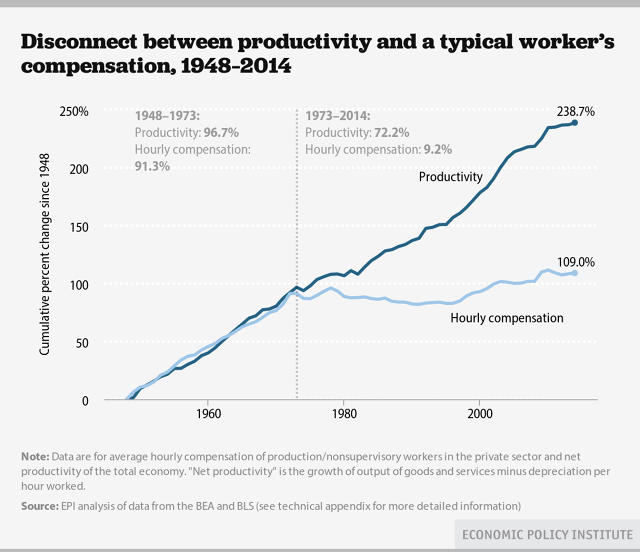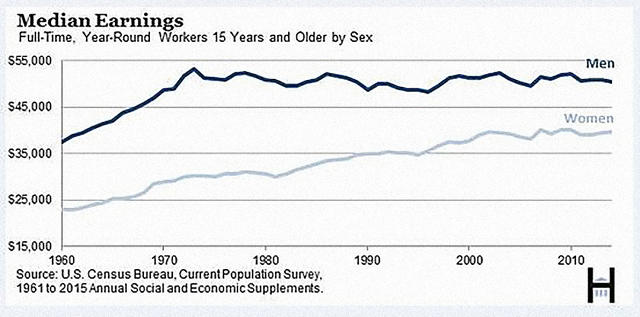
It’s not just unemployment that matters. Many full-time workers take home less money, after inflation, than in decades.
Because most everything we buy gets more expensive over time, we have to earn more money each year just to maintain our existing standard of living. When we’re not given raises that keep up with this rate of inflation, we’re effectively suffering a pay cut.. That’s why many American workers are actually poorer today than four decades ago. They may be earning more money. But, in real terms, they’re getting less for it. Measured in 2014 dollars, the median male full-time worker made $50,383 last year against $53,294 in 1973, according to new U.S. Census Bureau figures.

At $50,383, the figure is the lowest it’s been since 2006. It’s also $450 lower than in 2013. Women have seen bigger increases in real pay in the last few years, though from a lower (unequal) base. The median female worker earned $30,182 in 1973 (in 2014 dollars), but $39,621 last year.
As we explored in our income inequality series recently, technology, globalization, and reduced union bargaining power are all factors behind stagnating wages. The economy has been getting bigger, driven by continuing increases in productivity. But, for one reason or another, workers haven’t been sharing in those gains. But they’re not just disappearing: They’re making a small group of people very, very rich. What are we going to do about that?
[Top Photo: Thomas Barwick/Getty Images]



 And while the Moral Mondays movement is left-leaning, Barber told supporters that he wanted them to be political “defibrillators” because “we find we’ve got, not a left problem or a right problem or a conservative problem or a liberal problem. We’ve got a heart problem. When money and greed and political hubris and pride and ego and beating your opponent become more important than working together to uplift humanity, we’ve got a heart problem.”
And while the Moral Mondays movement is left-leaning, Barber told supporters that he wanted them to be political “defibrillators” because “we find we’ve got, not a left problem or a right problem or a conservative problem or a liberal problem. We’ve got a heart problem. When money and greed and political hubris and pride and ego and beating your opponent become more important than working together to uplift humanity, we’ve got a heart problem.”